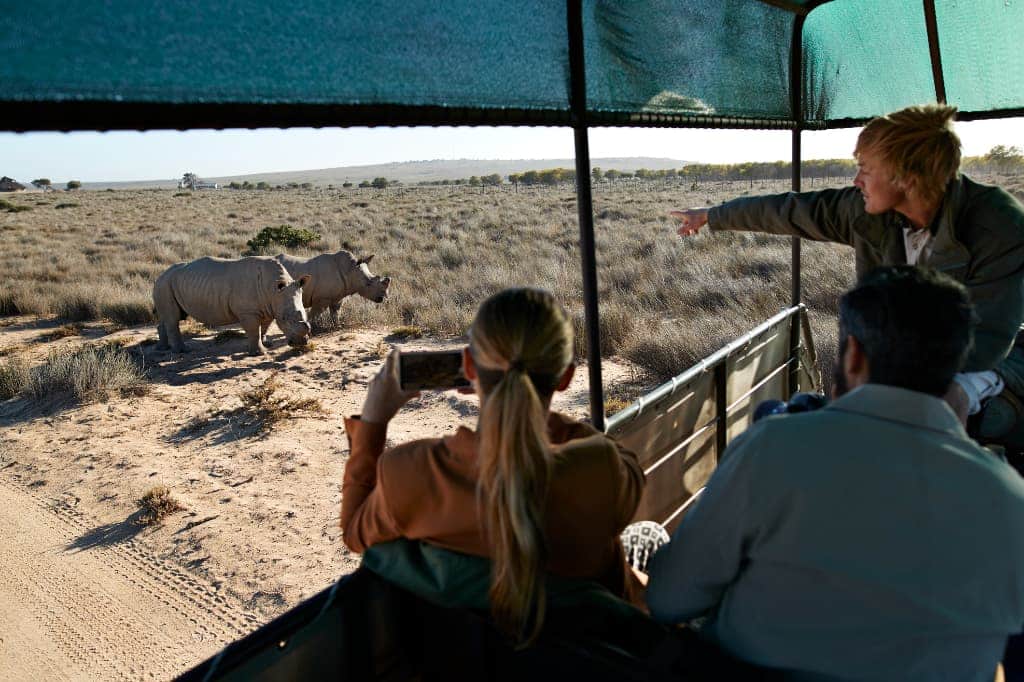Travel and hospitality is one of the world’s largest sectors and is expected to be worth $15.5 trillion by 2033, representing more than 11.6% of the global economy. The tourism industry greatly impacts business, especially retail, hospitality and transportation, generating income, creating jobs and boosting local economies. It also offers many exciting career opportunities for aspiring hospitality professionals, from management positions to marketing and event planning.
In this article, we will take a look at the different jobs in tourism, what skills you need to succeed and how a hospitality degree will help you kick-start your career.
Career paths in tourism
The tourist industry takes in leisure, recreation or business travel and covers a wide range of activities, including sightseeing, cultural exchange and adventure experiences. At its core, tourism focuses on exploring new places, enjoying different cultures and creating lasting memories. There are numerous career paths and roles available in the industry to suit various interests and skill sets, for example:
- Hospitality management: overseeing the operations of hotels, resorts, restaurants and other types of accommodation. Responsibilities may include guest services, facilities management and staff supervision
- Travel agency: assisting clients with planning and booking trips, including flights, accommodations, transportation and activities. Travel agents provide personalized recommendations and advice to ensure a seamless travel experience
- Tour guiding: leading groups of travelers on sightseeing tours, providing information about local attractions, history and culture. Tour guides must be knowledgeable, engaging and capable of managing groups of people from different places
- Event planning: coordinating conferences, conventions, weddings and other special events for tourists and locals alike. This requires strong organizational skills, attention to detail and the ability to manage multiple tasks simultaneously
- Destination marketing: promoting tourist destinations through advertising, social media and other marketing channels, developing strategies to attract visitors and increase tourism revenue for a particular region or destination
- Sustainable tourism: focusing on minimizing the environmental impact of travel and promoting responsible tourism practices. It could involve working for government agencies, non-profit organizations or tourism businesses to implement eco-friendly initiatives and raise awareness about conservation efforts
If you are inspired to follow one of these career paths, the right degree from a renowned hospitality school will give you the knowledge and skills you need to stand out from the competition.
Learn how to lead a successful hospitality business
With guidance from industry experts, this bachelor’s will give you the essential knowledge, skills and experience to excel in hospitality

Why choose a career in tourism?
The tourist industry presents a superb range of exciting opportunities. You can experience different cultures, connect with people from all walks of life and explore the world’s wonders. Some of the advantages of choosing a career in tourism are:
- Global experience: a career in tourism opens doors to international travel, allowing professionals to immerse themselves in various cultures, languages and traditions
- Versatile roles: from tour guides to hospitality managers, the tourism industry offers a wide range of roles suitable for different skills and interests
- Creativity potential: designing unique travel experiences requires imagination and innovation, making tourism an ideal field for creative minds
- Personal growth: navigating the complexities of travel and hospitality encourages people to develop adaptability, resilience and cross-cultural communication skills
- Impactful interactions: tourism professionals have the opportunity to create memorable experiences for travelers, shaping their perceptions and memories of destinations
- Economic contribution: tourism is essential for the global economy, generating employment opportunities and driving local development
Lifelong learning: there’s always something new to discover, whether it’s emerging travel trends, technological innovations or destination insights

Careers in tourism: roles, responsibilities and salaries
There is a wide range of job roles in the tourist industry, each with its own set of responsibilities and potential salary, including:
- Tour guide: leading tours, providing information about attractions, ensuring the safety and enjoyment of tourists and coordinating logistics. Tour guide salaries can vary widely depending on location and experience, but are usually between $57,910 and $76,586 a year
- Travel agent: assisting clients in planning and booking travel arrangements, providing information on destinations, accommodation, transportation and activities and handling reservations and payments. The average salary for a travel agent is $67,190 per year, with the potential for commission-based earnings on top
- Luxury travel consultant: designs personalized high-end travel experiences for affluent clients. Responsibilities include booking exclusive accommodation, arranging bespoke activities, providing expert destination advice and ensuring seamless, unique vacations. The average salary for a luxury travel consultant is $42,952 per year
- Hotel manager: overseeing the daily operations of a hotel, managing staff, ensuring guest satisfaction, handling budgets and financial matters and maintaining facilities. Depending on the size and location of the hotel, salaries can range from $96,418 to $141,560 per year
- Hotel sales manager: drives revenue by securing corporate contracts, organizing events and promoting services. Responsibilities include developing sales strategies, building client relationships and negotiating contracts. Salaries typically range from $98,377 to $143,644 annually, depending on the hotel’s size and location and the manager’s experience
- Airline pilot: operates aircraft, ensuring safe takeoffs, flights and landings. They plan flight routes, monitor weather conditions, communicate with air traffic control and manage in-flight emergencies. Salaries typically range from $170,501 to $211,601 a year depending on experience, airline and type of aircraft
- Event planners: organizing conferences, weddings or festivals, coordinating logistics, managing budgets and liaising with vendors and clients. The average event coordinator in the US earns between $66,146 and $83,900 per year but this can vary significantly based on the scale and complexity of events
- Resort manager: oversees daily operations, ensuring guest satisfaction and the smooth functioning of all departments. Responsibilities include managing staff, coordinating activities, handling budgets and maintaining facilities. Salaries typically range from $98,377 to $143,644 per year, depending on the resort’s size, location as well as the experience and qualifications the manager has
- Spa manager: supervises operations and delivers exceptional service and guest satisfaction in spas. Responsibilities include managing staff, scheduling appointments, maintaining inventory, promoting spa services and handling budgets and customer feedback. The average salary for a spa manager is $70,055 per year, depending on the spa’s size and location and the manager’s experience
- Concierge: provides information, makes reservations and arranges services such as transportation and entertainment. Responsibilities include recommending local attractions, handling special requests and ensuring a pleasant stay. Salaries typically range from $32,468 to $41,856 annually, depending on the hotel’s location and size and the concierge’s experience
What soft skills do you need for a career in tourism?
In the competitive tourist industry job market, success relies heavily on having a set of essential interpersonal skills, such as:
- Communication: vital for interacting with travelers, colleagues and service providers. Precise communication helps ensure smooth transactions and resolve issues promptly
- Customer service: providing exceptional support to clients and guests is essential in the tourism industry. Being able to anticipate and fulfill the needs of travelers with patience and empathy can turn a good experience into a great one
- Adaptability: handling unexpected situations and changing circumstances. Flexibility allows professionals to easily cope with challenges and maintain a positive attitude in fast-paced environments
- Cultural sensitivity: an awareness and understanding of different cultures, customs, traditions and beliefs
- Problem solving: quick thinking and resourcefulness are valuable traits for resolving issues that arise during travel
- Teamwork: collaboration is essential for delivering seamless service in the tourism industry. Working effectively with colleagues and partners helps the team achieve common goals and deliver exceptional experiences for travelers
Qualifications required for tourism careers
It’s common for professionals in the tourist industry to have a degree in hospitality management or another related field. When delivered by a renowned school, hospitality degrees provide a comprehensive understanding of the industry, including concepts such as customer service, revenue management and destination marketing.
Studying at a hospitality school offers numerous benefits beyond academic qualifications. Internship opportunities allow students to gain hands-on experience and develop practical skills in real-world settings, while specialization options enable students to focus their studies on specific areas of interest, such as luxury travel or event management.
Hospitality schools can also provide support and guidance from experienced mentors and industry leaders, offering valuable insights and advice for career advancement. Networking opportunities are abundant, allowing students to connect with industry professionals and build relationships that can lead to future job opportunities or collaborations.
The role of sustainability in tourism careers
The tourist industry has the opportunity to impact the environment positively, support local communities and promote responsible travel practices that benefit people and the planet. Whether working in tourism management, conservation science, education or hospitality, professionals in these sectors play a vital role in shaping a more sustainable future for the travel industry. Some of the key sustainable tourism career paths include:
- Sustainable tourism managers: work with tourism businesses, government agencies and non-profit organizations to develop and implement sustainable tourism plans
- Eco-tourism guide: lead travelers on environmentally responsible tours focusing on nature conservation, wildlife protection and cultural immersion
- Conservation scientist/manager: protect natural habitats, wildlife and biodiversity through research, monitoring and conservation initiatives
- Environmental educator: teach people about environmental issues, sustainability principles and conservation practices through workshops, seminars and outreach programs
- Sustainable destination planner: design and manage tourism destinations with a focus on environmental sustainability, cultural authenticity and community wellbeing
- Sustainable hospitality manager: oversees sustainability initiatives in hotels, resorts and other hospitality businesses
How to find tourism career opportunities around the world
Working abroad in this industry offers a unique opportunity to immerse yourself in different cultures, gain valuable international experience and develop a global perspective. Whether being a tour guide in a historic city, managing a resort on a tropical island or leading sustainability initiatives in a remote destination, pursuing a tourism career internationally can be rewarding and challenging. If you’re seeking positions in hospitality, travel planning or destination management, there are several strategies to consider:
- Research destinations: explore potential destinations based on your interests, skills and career goals, considering factors such as job market demand, cultural compatibility and quality of life
- Network: build connections with industry professionals, expatriates and local contacts through networking events, social media, professional associations and online forums to learn about job opportunities and gain insights into the local market
- Get international experience: gain relevant knowledge through hospitality internships, volunteer work or short-term assignments to strengthen your resumé and demonstrate your ability to work in different cultural settings
- Be flexible: consider a range of job opportunities, including entry-level positions, temporary assignments and freelance work as well as roles that may require flexibility in terms of location, schedule and responsibilities
- Stay informed: keep up to date with global trends, market developments and emerging opportunities by reading industry publications, attending conferences and following key influencers and thought leaders
- Language skills: multilingual proficiency can significantly improve your job prospects in the global tourism industry
- Online job portals: use recruitment websites that cater to the tourism and hospitality sector to search for opportunities worldwide and submit applications remotely
Conclusion
The tourism industry offers an exciting range of career opportunities that cater to various interests and skillsets. From hospitality management to travel agency roles, tour guiding, event planning and destination marketing, there are numerous pathways for aspiring professionals in the sector. A career in tourism is not only about exploring new places and experiencing different cultures, it also involves contributing to economic and social development. You will need a blend of essential skills, including communication, customer service, adaptability, cultural sensitivity, problem solving and teamwork.
Working in tourism also offers the potential for gaining global experience, making connections and personal growth. Whether you manage a hotel, plan an event or guide tourists, a career in tourism is a fulfilling and exciting path, full of lifelong learning and memorable experiences.
A hospitality degree can significantly boost your prospects, providing comprehensive industry knowledge, practical experience through internships and valuable networking opportunities.
Photo credits:
Main Image: Getty SolStock









